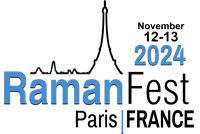 |
| INVITED |
|
 |
| . |
|
|
Sara Abalde
INL, Portugal
Invited – Plenary Session
Dr Sara Abalde-Cela is the Research Group Leader of the Medical Devices group at the International Iberian Nanotechnology Laboratory (INL), Braga, Portugal. The Medical Devices group focuses on the development of optofluidic platforms for the diagnosis and understanding of diseases. Sara holds a PhD in nanotechnology by the Universidade de Vigo and a postdoc in the field of microfluidics at the University of Cambridge. Sara has attracted +6 million € in competitive funding as a PI, such as Pathfinder, FET Open or RIA/IA Actions. She has also been active in teaching, science outreach and start-up programs internationally (Cambridge, London, Boston, Vigo, and Braga). Sara is also the co- founder and CTO of the start-up RUBYnanomed (2018 – now), having raised more than 5 million € for innovation to date. In 2022 she was nominated as finalist for Women Innovators Prize by the European Innovation Council.
|
|
|
|
|
 |
| INVITED |
|
 |
| . |
|
|
Miguel A. Bañares
CSIC-Instituto de Catalisis, Spain
Invited – Plenary Session
|
|
|
|
|
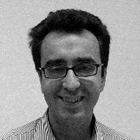 |
| KEYNOTE |
|
 |
| . |
|
|
Giulio Cerullo
Politecnico di Milano, Italy
Keynote – Plenary Session
Giulio Cerullo is a Full Professor with the Physics Department, Politecnico di Milano, where he leads the Ultrafast Optical Spectroscopy laboratory. Prof. Cerullo’s research activity covers a broad area known as “Ultrafast Optical Science”, and concerns on the one hand pushing our capabilities to generate and manipulate ultrashort light pulses, and on the other hand using such pulses to capture the dynamics of ultrafast events in molecular and solid-state systems. He has published over 500 papers which have received >30000 citations (H-index: 88 on Scopus). He is a Fellow of the Optical Society of America, of the European Physical Society and of the Accademia dei Lincei and past Chair of the Quantum Electronics and Optics Division of the European Physical Society. He is the recipient of an ERC Advanced Grant (2012-2017) on two-dimensional electronic spectroscopy of biomolecules. He has been General Chair of the conferences CLEO/Europe 2017, Ultrafast Phenomena 2018 and the International Conference on Raman Spectroscopy 2020. In 2023, he received the Quantum Electronics Prize of the European Physical Society. He is the co-founder of two spin off companies (NIREOS and Cambridge Raman Imaging).
|
|
|
|
|
 |
| INVITED |
|
 |
| . |
|
|
István Csarnovics
University of Debrecen, Hungary
Invited – Plenary Session
Dr. István Csarnovics is a leading nanostructure expert and an associate professor at the Institute of Physics, Faculty of Science and Technology, University of Debrecen, Debrecen, Hungary. István is active in his research and in shaping the educational landscape at the institute. His educational and Erasmus officer role is a testament to his commitment to creating networks with other universities and companies. This commitment enhances students' possibilities to participate in different mobilities and traineeships. He not only teaches but also leads the Institute's Photonics-Plasmonics Laboratory. His primary focus and dedication lie in developing, investigating, and characterizing different nanostructures for surface-enhanced Raman scattering – finding the optimal parameters and substrates. For now, it is just optimizing, but in the next step, it will be used to create a sensing medium for cancer diagnosis. At the same time, using Raman spectroscopy, his group participated in different research related to microplastic detection in fish, food safety issues, dental material development, cancer cell characterization, and the investigation of other materials.
|
|
|
|
|
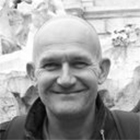 |
| KEYNOTE |
|
 |
| . |
|
|
Ludovic Duponchel
Université de Lille, France
Keynote – Plenary Session
Ludovic Duponchel is Full Professor of Physical-Chemistry at the University of Lille (France) since 2008. He was Chairman of the French Chemometrics Society under the aegis of the French Statistical Society between 2013 and 2023. In 1997, he defended his Ph.D. in Physical Chemistry. His research was focused on the development of a portable near infrared spectrometer for chemical analysis in agrofood industry. He spent two years in the Horiba Jobin-Yvon Company in Paris for instrumental and chemometrics researches. In 2000, he was Assistant Professor, attached to the LASIRE lab at the University of Lille. His academic interests focus on the development of new chemometrics methodologies in order to go further in the exploration of various spectral data sets considering different instrument setup. Over the past 15 years, his research has primarily focused on overcoming challenges related to the analysis of data from hyperspectral imaging.
|
|
|
|
|
 |
| INVITED |
|
 |
| . |
|
|
Yann Gallais
Université Paris Cité, France
Invited – Plenary Session
Yann Gallais is Professor of Physics at Université Paris Cité since 2016 and a member of the Matériaux et Phénomènes Quantique CNRS/Université Paris Cité joint research laboratory.The research activities of Yann Gallais are focused on the study of interacting quantum phases in materials where electron correlations play a central role. In particular, he has obtained several major results in the field of unconventional superconductivity using optical techniques such as Raman and THz spectroscopies coupled with dedicated static and dynamical tuning parameters like pressure and light. Among them one can cite the discovery of electron nematic instabilities and their role in promoting superconductivity in iron-based superconductors. He has also played a key role in the emerging field of Higgs spectroscopy in superconductors. His current research projects are towards the control of complex electronic phases via nano- fabricated devices and light. Among these the use of light-matter coupling in free space and in cavities to generate novel quantum phases are at the heart of his current projects.
|
|
|
|
|
 |
| INVITED |
|
 |
| . |
|
|
Pola Goldberg Oppenheimer
University of Birmingham, UK
Invited – Plenary Session
Pola Goldberg Oppenheimer is a Professor in Micro-Engineering and Bio-Nanotechnology at the School of Chemical Engineering and the Healthcare Technologies Institute (HTI). Professor Oppenheimer leads an interdisciplinary research group at the University of Birmingham, closely working with the clinical teams at the Queen Elizabeth Hospital (QEHB) and Birmingham Enterprise, the University’s technology transfer specialists. Her group's research programme is targeted at exploring the frontiers of micro to nanomaterials engineering while bridging the gap between nano-to-macroscopic-level understanding and implementations of novel hybrid and nanocomposite materials and submicron structures for miniaturised functional devices for advanced healthcare applications. Professor Oppenheimer is developing cutting-edge Engineering solutions to tackle major medical problems. Professor Oppenheimer's research interests lie in nano and submicron structure formation (Advanced Nano-Materials, Structures and Applications Group) at surfaces and in thin films, including pioneering the potential use of hierarchical electrohydrodynamically generated functional structures to develop novel polymer-based nano-detection devices. She brings detailed expertise in creating and aligning a wide range of nanostructures in polymers, carbon nanotube-based nanocomposites, crystalline materials and a synergistic interest in biometrics, including the use of polymers with 10mm morphologies as templates to create inorganic functional devices.
|
|
|
|
|
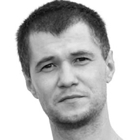 |
| INVITED |
|
 |
| . |
|
|
Oleksii Ilchenko
Lightnovo, Denmark
Invited – Plenary Session
Oleksii received his PhD in Optics and Laser Physics in 2016 from Kyiv, Ukraine. Following his PhD, he pursued a successful academic career at the Technical University of Denmark, holding positions as Postdoctoral Fellow, Researcher, and Senior Researcher. During this research he developed multiple technological solutions within the field of Raman spectroscopy and Raman microscopy. These technologies laid the foundation for the spin-out company, Lightnovo ApS. Currently, Oleksii is dedicated to Lightnovo’s mission to democratize high-end Raman technology, delivering uncompromised performance to benefit its customers.
|
|
|
|
|
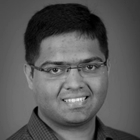 |
| PLENARY |
|
 |
| . |
|
|
Deep Jariwala
University of Pennsylvania, USA
Plenary Talk
Deep Jariwala is an Associate Professor and the Peter & Susanne Armstrong Distinguished Scholar in the Electrical and Systems Engineering as well as Materials Science and Engineering at the University of Pennsylvania (Penn). Deep completed his undergraduate degree in Metallurgical Engineering from the Indian Institute of Technology in Varanasi and his Ph.D. in Materials Science and Engineering at Northwestern University. Deep was a Resnick Prize Postdoctoral Fellow at Caltech before joining Penn to start his own research group. His research interests broadly lie at the intersection of new materials, surface science and solid-state devices for computing, opto-electronics and energy harvesting applications in addition to the development of correlated and functional imaging techniques. Deep’s research has been widely recognized with several awards from professional societies, funding bodies, industries as well as private foundations the most notable ones being the Optica Adolph Lomb Medal, the Bell Labs Prize, the AVS Peter Mark Memorial Award, IEEE Photonics Society Young Investigator Award, IEEE Nanotechnology Council Young Investigator Award, IUPAP Early Career Scientist Prize in Semiconductors and the Alfred P. Sloan Fellowship. He has published over 150 journal papers with more than 20000 citations and holds several patents.
|
|
|
|
|
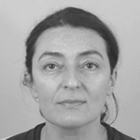 |
| KEYNOTE |
|
 |
| . |
|
|
Senada Koljenović
Antwerp University Hospital / University of Antwerp, Belgium
Keynote – Plenary Session
Professor and Head of the Pathology department, and Consultant Pathologist at Antwerp University Hospital / University of Antwerp (Belgium), where she mainly focuses on Head and Neck pathology and Dermatopathology. She is a PI within a multidisciplinary group. She works intensively on improving surgical-pathological communication and correlation of information for better diagnosis, surgical results and patient outcome. She furthermore coordinates close collaboration with other academic centers and affiliated non-academic institutes, to facilitate design and execution of large multi-center studies. Her Ph.D - thesis focused on clinical application of Raman spectroscopy. Her department of Pathology has an open door policy for developments in Photonics and optical spectroscopies and is a bridge between clinical practice and Photonics, to enable improved diagnosis and treatment of different diseases. Research is translational with focus on medical applications of Photonics in general, and in particular applications of Raman spectroscopy-based tools in Head and Neck surgery (Raman-guided surgical resections facilitating safe surgical margins in oral cancer) and in characterisation of pre-neoplasia for its’s early diagnosis.
|
|
|
|
|
 |
| INVITED |
|
 |
| . |
|
|
Claire Mangeney
Université Paris - Descartes, France
Invited – Plenary Session
Claire Mangeney is a full professor at Laboratory of Pharmaceutical and Toxicological Chemistry and Biochemistry, Université Paris Cité, and co-leads the Biospectroscopy team. Her research lies at the intersection of nanotechnology, spectroscopy, and biology. She focuses on developing hybrid nanomaterials and innovative chemical strategies using aryl diazonium salts to functionalize surfaces, particularly plasmonic arrays. Her work aims at designing nanoscale tools that act as ideal interfaces for probing biological systems at various scales and incorporating these tools into advanced, fully optical sensing devices
|
|
|
|
|
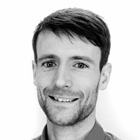 |
| INVITED |
|
 |
| . |
|
|
Jérôme Michon
inSpek, France
Invited – Plenary Session
|
|
|
|
|
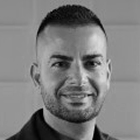 |
| INVITED |
|
 |
| . |
|
|
Matteo Negro
Cambridge Raman Imaging Ltd., Italy
Invited – Plenary Session
Dr Matteo Negro, is widely experienced in laser technology, ISO 13485 and the requirements of medical devices regulations. Matteo is leading the company after having built a technical team with expert knowledge in the critical technology areas. As a CTO, Matteo is also leading product design and development.
|
|
|
|
|
 |
| INVITED |
|
 |
| . |
|
|
Andrea Mario Rossi
INRIM, Italy
Invited – Plenary Session
Andrea Mario Rossi leads the Chemical, Physical, and Nanotechnologies program at INRiM and serves as the chair of the EURAMET European Metrology Network for Safe and Sustainable Food (EMN Food). He is also part of the Italian node of the METROFOOD infrastructure, which promotes metrology in food and nutrition. As the scientific lead of the food safety metrological infrastructure (IMPreSA), he plays a key role in advancing food safety. With over 140 publications, his research spans IR and Raman spectroscopy, SERS, TERS, and studies on micro- and nanoparticles, including contamination in food samples and biological tissues
|
|
|
|
|
 |
| INVITED |
|
 |
| . |
|
|
Ali Tfayli
Université Paris Saclay, France
Invited – Plenary Session
Professor for Analytical Chemistry at the Université Paris-Saclay (since 2019); Coordinator of Master program (research and development in Analytical strategies (since 2019); PhD in biophotonics from the University of Reims Champagne Ardennes; supervised 7 PhDs, currently supervising 3. Prof. Tfayli initiated and coordinates several scientific institutional and industrial projects. Former member of the Raman group and hyperspectral imaging group in the French Society of Pharmaceutical Sciences and Technology (SFSTP) and co-author of a guideline for the use of RS and hyperspectral imaging for French pharmaceutical industry. Former expert in the French pharmacopoeia group at ANSM. Author/co-author of 68 peer-reviewed publications, 1 patent and 32 international conference papers.
|
|
|
|
|
| |
|
|
